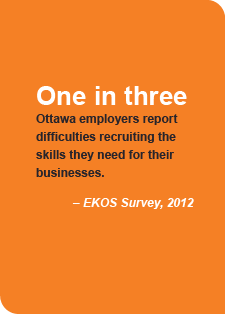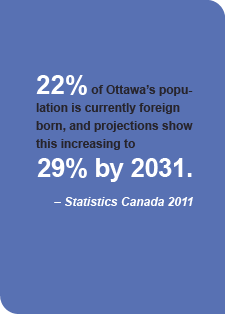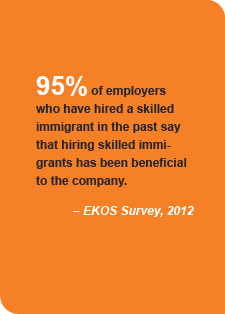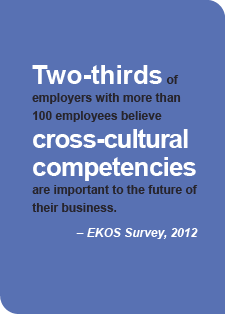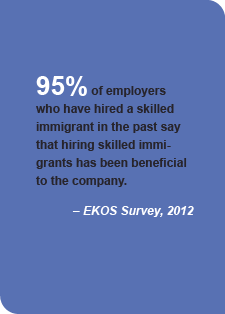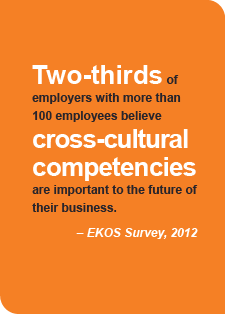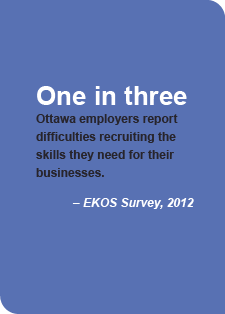What is Cross-Cultural Competency?
In the workplace setting, cross-cultural competence means workers have the ability to understand, communicate, and effectively interact with people across cultures, be it their colleagues, customers, clients, or suppliers.
Culturally competent businesses and organizations are those with policies, practices and systems designed to support and facilitate effective cross-cultural interactions in all areas of human relations, including recruitment, hiring, and retention practices.
Cross cultural training helps people acquire the skills, insights, personal strategies and self-awareness needed to be respectful, inclusive, and effective. In today’s economy, it is an essential skill and a business imperative.
Why Cross-Cultural Competency?
Cross-cultural competency is the key to managing diverse and inclusive workplaces. The ability to communicate, interact, and effectively lead people across cultures is an essential skill.
Ottawa’s got diversity – One in five residents is foreign born (2006 Census), and projections show this proportion will increase over the course of the coming decades. By 2031, 36% of Ottawa’s total population will be in a visible minority group, which will nearly double the 19% recorded in the 2006 Census.
Ottawa’s got diverse talent. Immigrants make up 27% of Ottawa’s population with post-secondary credentials. Today, private sector companies and public sector organizations are embracing diversity as a strategic advantage to be:
- Competitive. Eliminate unintended preferences, biases and practices and gain access to the widest possible pool of talent; hire the best available talent.
- Responsive. Reflect customer and client diversity.
- Innovative. Welcome new and diverse perspectives.
Benefits of Cross-Cultural Training
Cross-cultural competencies benefit individuals and organizations alike! Human Resources and people managers gain skills and confidence in many of their key areas of responsibility, including performance management, team communication, and problem-solving. Learners are also provided the opportunity to better understand their own adaptability and strategize about fostering this crucial skill.
Organizations in turn can benefit from this capacity building, as employee engagement is maximized, communication is optimized, and employees appreciate the value of diverse perspectives. Your workplace will thrive as it becomes more inclusive and the organizational capacity to problem solve, identify new ideas and innovation is enhanced.
The Cross-Cultural Advantage:
- More effective hiring practices
- Improved access to a wide and diverse talent pool
- More inclusive and innovative workplace
- Improved interactions and communications with staff, vendors, partners and customers
- Attract and retain top talent
- Effectively manage diverse work teams




